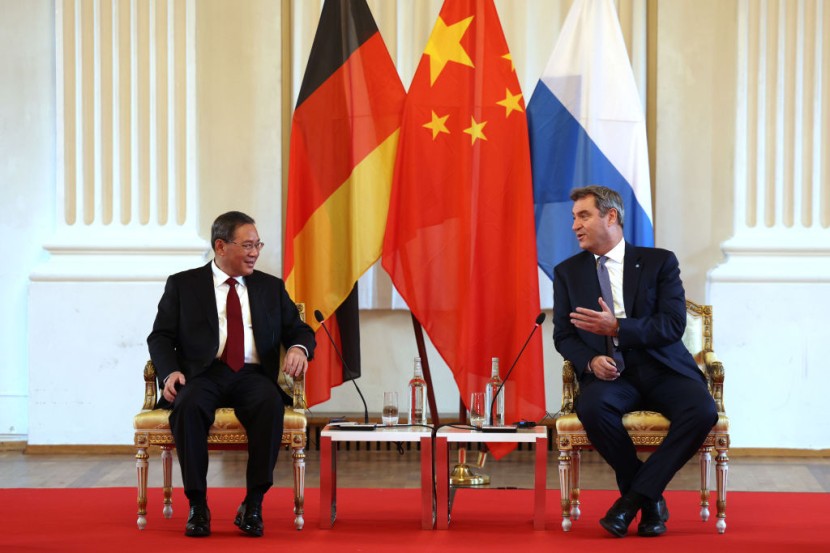
Germany and China tentatively agreed to integrate their economies further and work together to combat climate change, despite the fact that Chancellor Olaf Scholz's ruling coalition increasingly regards the government in Beijing as a competitor rather than a partner.
On Tuesday in Berlin, Scholz hosted Chinese Premier Li Qiang for negotiations witnessed by senior ministers from both governments.
China, Germany Underline Importance of Cooperation
At a joint news conference, they each delivered a statement delineating areas in which their nations can deepen cooperation, but without providing many specifics or answering reporters' queries, as per Bloomberg.
Li, who is on his first international travel since assuming office, is anticipated to discuss trade, climate change, and the conflict in Ukraine with Scholz.
According to Al Jazeera, this is the seventh time that Germany and China have held high-level government consultations, and it comes a day after US Secretary of State Antony Blinken met Chinese President Xi Jinping, signaling an effort by Beijing to strengthen relations with the West.
Li, a former Shanghai Communist Party secretary who became China's No. 2 official in March, met with German President Frank-Walter Steinmeier and dined with Scholz at the chancellery on Monday.
Despite concerns about China's increased assertiveness and refusal to condemn Russia's full-scale invasion of Ukraine, Germany is eager to maintain good relations with China, its largest trading partner.
China is described as a partner, competitor, and systemic foe in Germany's recently released national security strategy. Scholz has stated that he intends to reduce Germany's reliance on Chinese trade and diversify its supply of critical products, a strategy he refers to as "derisking," while rejecting the concept of "decoupling" from China.
Russia's conflict in Ukraine, Beijing's deepening engagement with Moscow, and China's simmering tensions with the United States, Germany's most important ally, have strained relations between the two countries.
China Remains Most Important Economic Partner of Germany
These will be the first consultations for Scholz, as well as Li's first visit to Berlin as premier, accompanied by a large train of ministers. There is little doubt that their mandates will conflict, despite their efforts to influence areas of shared interest.
Per NY Times, the meeting will provide Germany with an opportunity to assert a new posture, one in which China remains one of its most important economic partners but is also a "systemic rival."
Therefore, Berlin will attempt to protect its essential technologies and encourage its companies to diversify away from China. It will be an opportunity for China to persuade its largest European trading partner to continue doing business as usual, and to drive a wedge between Berlin and Washington.
Germany is still learning how to maintain necessary economic ties with China despite mounting US pressure to align with it against Beijing. A German official referred to it in private as Berlin's "three-body dilemma."
German officials no longer have the privilege of separating their economic and political interests, as they are keenly aware that Washington is their security guarantee. German-Chinese, German-American, and American-Chinese relationships, which were once viewed as bilateral and distinct, now appear entangled.
Germany's economic ambitions have been affected by security concerns in ways that were not previously a concern. The annexation of Ukraine by Russia compelled Germany to reevaluate economic relationships it had taken for granted, such as its reliance on inexpensive gas from Russia, which once supplied 50 percent of its supply.
Germany was able to transition to alternative energy sources, narrowly avoiding a severe energy crisis but not a recession. In comparison, a Chinese attack on Taiwan that sparks a US-Chinese military confrontation would be significantly more agonizing.








